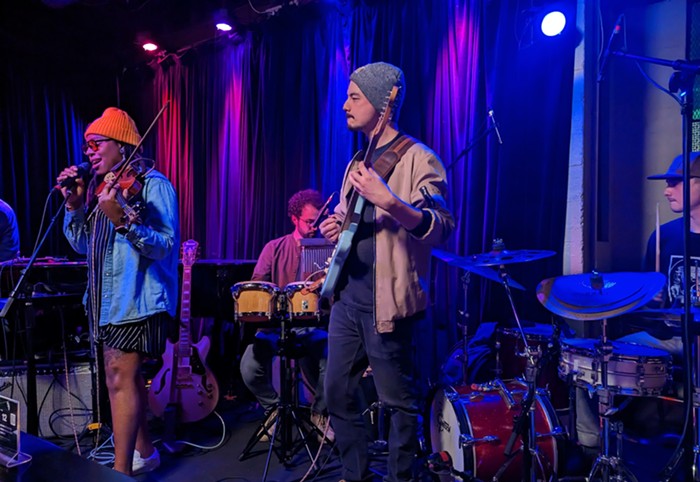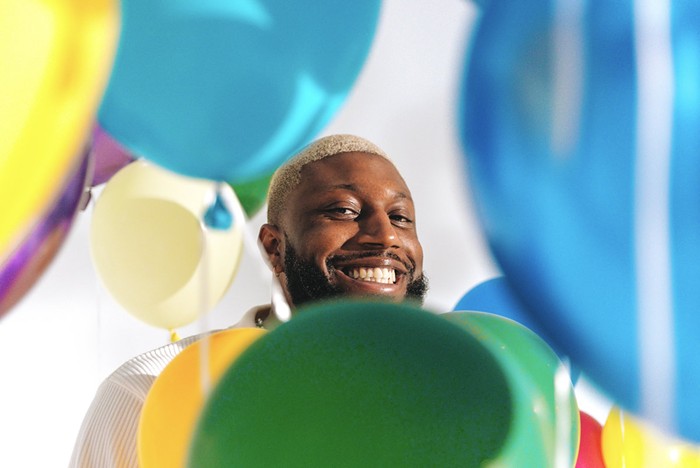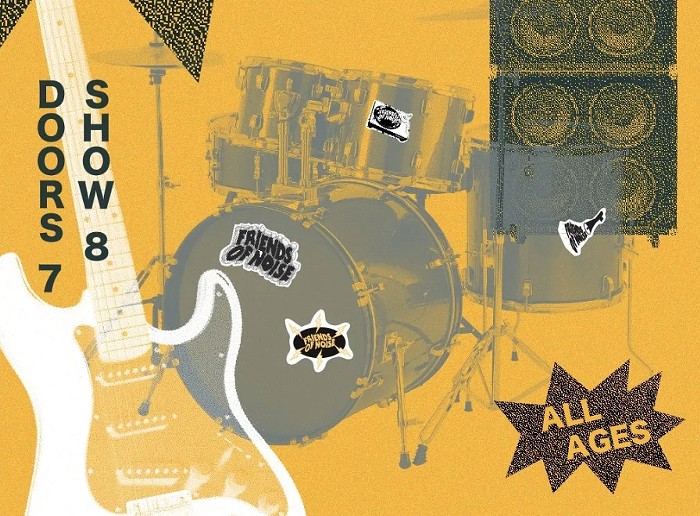DURING THE closing decades of the 20th century, jazz did not so much decline as it retreated into the safe preserves of academia. Having relinquished turf in both the clubs and streets—to, at first, rock 'n' roll, then funk, then, most significantly, rap and hiphop—jazz matured by transforming into fodder for, nearly exclusively, scholars and musicians (and the occasional, stoned white guy). In this way, the endangered species of jazz was allowed to exist, unspoiled, in relative isolation.
Many self-respecting jazz fans might take umbrage at this idea, as it is diametrically opposed to the bedrock philosophies of jazz: spontaneity, evolution, and improvisation. But the state of jazz music in America today is emblematic of any art form that sticks around long enough; I don't think it is too reckless to say that jazz's most important moments are behind it. Music that was historically very much about the body—rhythm, and swing, and notes that can't be written down on paper—is now invariably music for the (brainy, cultivated) mind. And the annual Portland Jazz Festival returns with plenty of brain food. Now in its ninth year, the festival "aims to inspire, educate, and develop future jazz audiences for generations to come."
The marquee names are Branford Marsalis and Bill Frisell, both readily recognizable outside the jazz sphere. Noodly guitarist Charlie Hunter headlines the "Portland Jam Band Marathon," a dubious title that should send actual jazz fans screaming for the hills—but the program may not be nearly so nefarious, with local Afrobeat-influenced bands Commotion and Jujuba also on the bill. It's noteworthy that many of this year's programs are tributes to other (dead) musicians, including saxophonist Charles McPherson's tribute to Charlie Parker and Lester Young, Dee Dee Bridgewater's evening of Billie Holiday songs, and Frisell's homage to the songs of John Lennon, Speedy West, and Jimmy Bryant. These might seem like museum pieces, but if listening to jazz has become more and more like a trip to the museum, PDX Jazz displays a great exhibit for the next 10 days. And a trip to the museum never hurt, anyway.



















